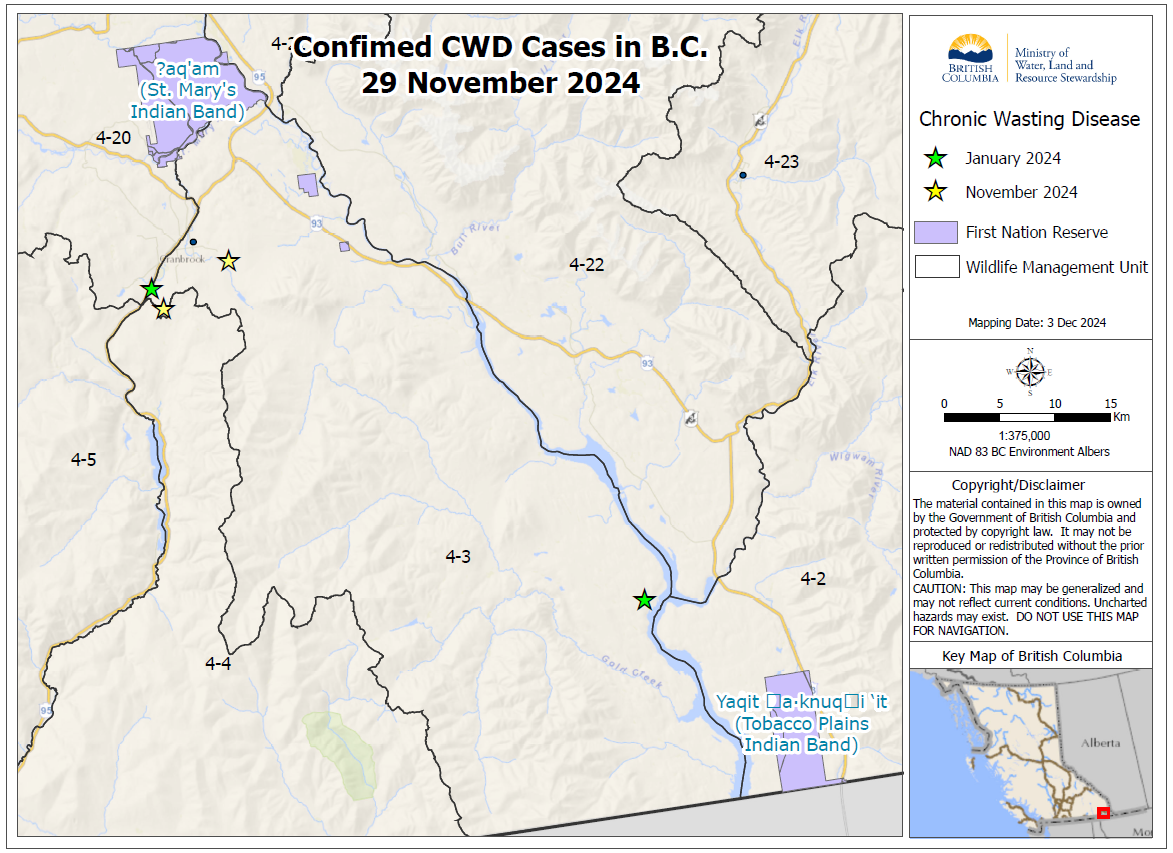The B.C. Wildlife Federation is urging the provincial government to take action after new cases of Chronic Wasting Disease have been detected in deer from the Kootenay region.
The provincial government should employ a managed hunt to collect 100 samples for CWD testing from each of Cranbrook, Kimberley and Creston to better understand the prevalence of the disease.
“CWD is becoming more prevalent since two cases were detected earlier this year,” said BCWF Executive Director Jesse Zeman. “Cranbrook and other towns in the East Kootenays are perfect vectors for CWD as they have high densities of urban deer.”
As new cases of Chronic Wasting Disease are discovered, the provincial government must take new steps to contain its spread.
The BCWF is concerned that chronic underfunding and a backlog of samples submitted by hunters will hamper efforts to detect and contain this fatal disease. Hundreds of samples from deer submitted by hunters in southeastern B.C. are waiting to be tested. No additional dedicated funding was allocated for CWD in the last provincial budget.
“Urban deer populations in towns like Kimberly, Cranbrook and Creston need to be dramatically reduced immediately and the province needs a dedicated funding mechanism to ensure that we can adequately address this problem,” he said.
“City deer have a small range and relatively high density, living in close quarters with frequent contact, which makes them a perfect vector for disease,” said Zeman. “Because deer may contract the disease but remain symptom-free for months or years, urban deer pose a high risk of dispersing the pathogen.”
More positive tests seem inevitable and the positives to date suggest the area around Cranbrook is becoming a hotspot.
The BCWF believes that urban deer populations should be aggressively reduced as they are a significant vector for the spread of CWD. Unfortunately, little testing has been done on urban deer populations. Young bucks may contract the disease and then leave the area seeking mates and uncontested range. An aggressive program to test and reduce urban deer populations is essential to curtail the spread of CWD.
“Hunters have been actively engaged in sampling and turning in heads to do their part to identify prevalence and continue to be diligent about following new transportation of cervids, such as deer, elk and moose,” Zeman noted. “Along with greater cooperation from hunters, testing turnaround times have improved.”
The B.C. Wildlife Federation has strongly recommended a managed hunt to contain Chronic Wasting Disease before it spreads north to more vulnerable cervid populations, like caribou.
Read the BC Government’s news releases announcing new positive cases:

